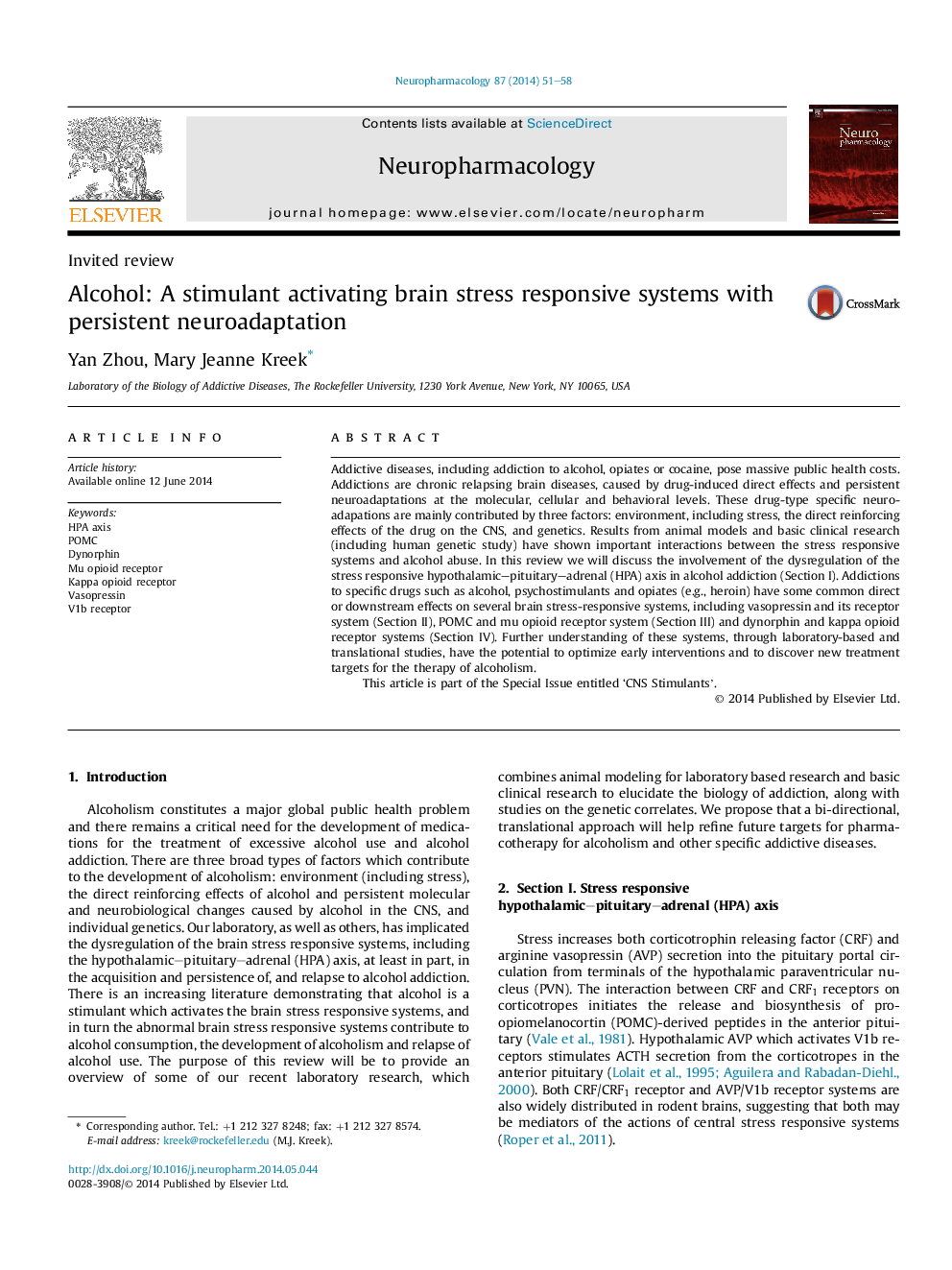| Article ID | Journal | Published Year | Pages | File Type |
|---|---|---|---|---|
| 5814342 | Neuropharmacology | 2014 | 8 Pages |
â¢Alcohol activates brain stress responsive systems with persistent neuroadaptation.â¢Dysregulation of the hypothalamic-pituitary-adrenal axis by alcohol.â¢Dysregulation of vasopressin and its receptor system by alcohol.â¢Dysregulation of POMC and mu opioid receptor system by alcohol.â¢Dysregulation of dynorphin and kappa opioid receptor systems by alcohol.
Addictive diseases, including addiction to alcohol, opiates or cocaine, pose massive public health costs. Addictions are chronic relapsing brain diseases, caused by drug-induced direct effects and persistent neuroadaptations at the molecular, cellular and behavioral levels. These drug-type specific neuroadapations are mainly contributed by three factors: environment, including stress, the direct reinforcing effects of the drug on the CNS, and genetics. Results from animal models and basic clinical research (including human genetic study) have shown important interactions between the stress responsive systems and alcohol abuse. In this review we will discuss the involvement of the dysregulation of the stress responsive hypothalamic-pituitary-adrenal (HPA) axis in alcohol addiction (Section I). Addictions to specific drugs such as alcohol, psychostimulants and opiates (e.g., heroin) have some common direct or downstream effects on several brain stress-responsive systems, including vasopressin and its receptor system (Section II), POMC and mu opioid receptor system (Section III) and dynorphin and kappa opioid receptor systems (Section IV). Further understanding of these systems, through laboratory-based and translational studies, have the potential to optimize early interventions and to discover new treatment targets for the therapy of alcoholism.This article is part of the Special Issue entitled 'CNS Stimulants'.
